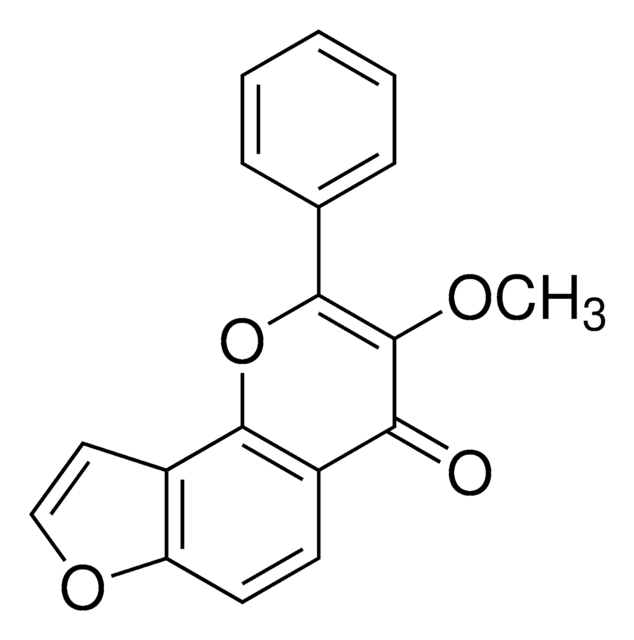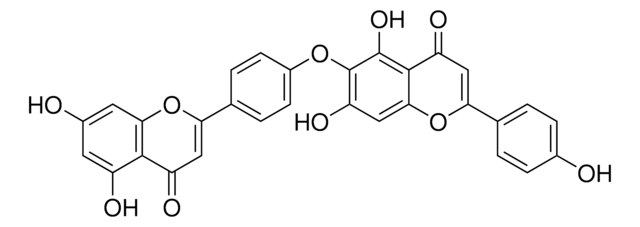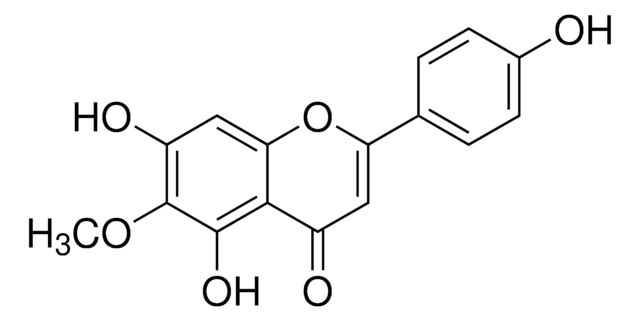40584
Amentoflavone
≥98.0% (HPLC)
Synonym(s):
Didemethyl-ginkgetin, I3′,II8-Biapigenin, Tridemethylsciadopitysin
About This Item
Recommended Products
Assay
≥98.0% (HPLC)
form
solid
application(s)
metabolomics
vitamins, nutraceuticals, and natural products
storage temp.
2-8°C
SMILES string
Oc1ccc(cc1)C2=CC(=O)c3c(O)cc(O)c(c3O2)-c4cc(ccc4O)C5=CC(=O)c6c(O)cc(O)cc6O5
InChI
1S/C30H18O10/c31-15-4-1-13(2-5-15)24-12-23(38)29-21(36)10-20(35)27(30(29)40-24)17-7-14(3-6-18(17)33)25-11-22(37)28-19(34)8-16(32)9-26(28)39-25/h1-12,31-36H
InChI key
YUSWMAULDXZHPY-UHFFFAOYSA-N
Gene Information
human ... GABRA1(2554)
Looking for similar products? Visit Product Comparison Guide
General description
Application
- as a chemical inhibitor to determine the selective attenuation of p-Cresol glucuronidation in HepaRG cells
- as a reference standard for qualitative and quantitative analyses of phenolic compounds of Juniperus foetidissima Willd. and Juniperus sabina L. using reverse phase- high-performance liquid chromatography- diode array detector (RP-HPLC-DAD)
- as a reference standard to analyze and standardize the methanol extract process of Juniperus drupacea Labill. phenolic compounds using reverse phase- high-performance liquid chromatography - diode array detector (RP-HPLC-DAD)
Biochem/physiol Actions
Packaging
Storage Class Code
11 - Combustible Solids
WGK
WGK 3
Flash Point(F)
Not applicable
Flash Point(C)
Not applicable
Personal Protective Equipment
Certificates of Analysis (COA)
Search for Certificates of Analysis (COA) by entering the products Lot/Batch Number. Lot and Batch Numbers can be found on a product’s label following the words ‘Lot’ or ‘Batch’.
Already Own This Product?
Find documentation for the products that you have recently purchased in the Document Library.
Articles
Antioxidants protect biological systems from oxidative damage produced by oxygen-containing free radicals and from redoxactive transition metal ions such as iron, copper, and cadmium.
Our team of scientists has experience in all areas of research including Life Science, Material Science, Chemical Synthesis, Chromatography, Analytical and many others.
Contact Technical Service






